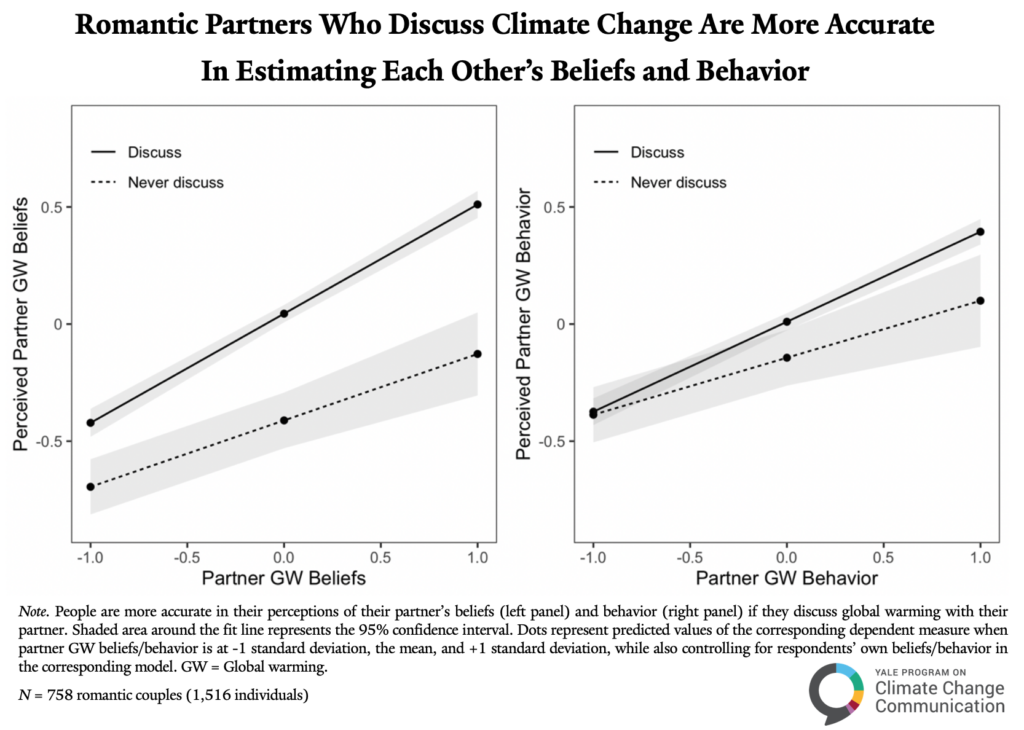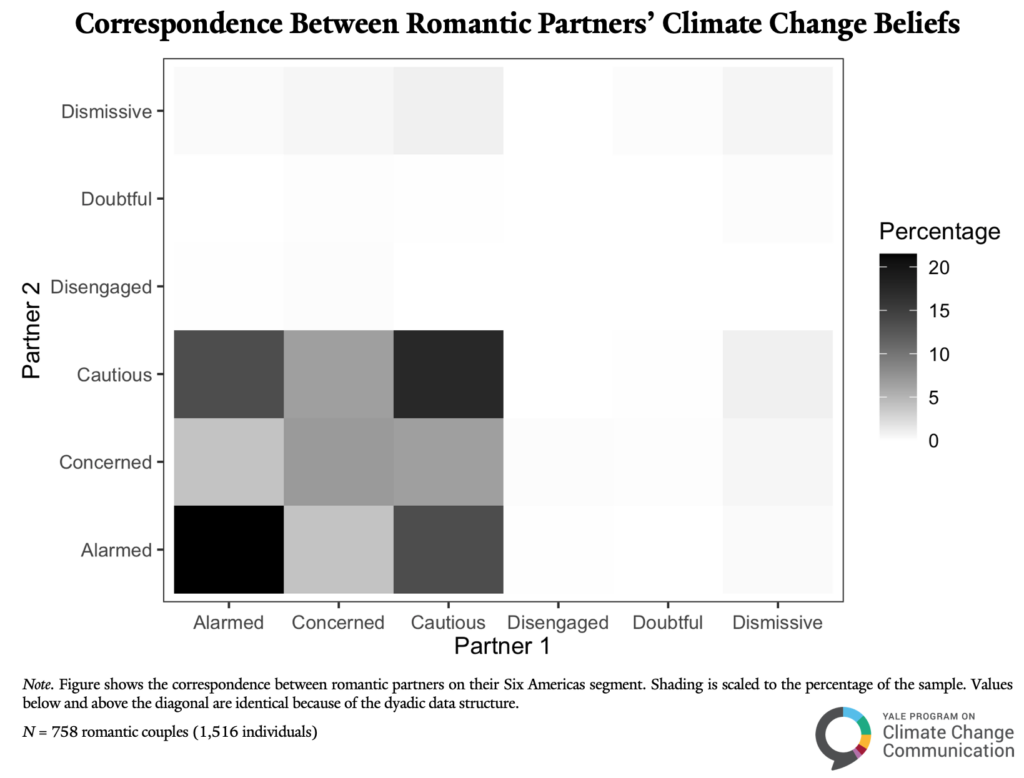Peer-Reviewed Article · Jun 23, 2022
Perceptions and correspondence of climate change beliefs and behavior among romantic couples
By Matthew Goldberg, Cheryl Carmichael, Karine Lacroix, Abel Gustafson, Seth Rosenthal and Anthony Leiserowitz
Filed under: Behaviors & Actions and Beliefs & Attitudes

We are pleased to announce the publication of a new article, “Perceptions and correspondence of climate change beliefs and behavior among romantic couples” in the Journal of Environmental Psychology.
People often take cues from the people around them to inform what they themselves believe and how to behave. Or, put simply, people are influenced by social norms. This insight has generated great interest among scholars studying climate change communication. Our previous research has shown that perceived social norms are an important predictor of attitudes about climate change and support for policies to address it. For example, research has found that communicating the fact that pro-climate beliefs and behaviors are common in society encourages individuals to adopt such beliefs and behaviors themselves. However, one important limitation of many of the studies that explore this connection is that their descriptions of social norms typically refer to the norms of large, impersonal groups, such as people living in one’s state or country. But other research has shown that close others, such as friends, family, and romantic partners often have a greater influence on what people think and how they behave than do impersonal others.
To investigate this in the context of climate change, we asked both members of 758 romantic couples (N = 1,516 individuals) about their climate change beliefs and behaviors. We found that climate change beliefs and behaviors often differ between romantic partners, creating opportunities for partners to influence each others’ climate attitudes. To illustrate this, we categorized all respondents using our Global Warming’s Six Americas segments and found that many respondents were in a different segment than their partner. As shown in the first column in the figure below, many respondents were in the Alarmed segment, while their partner was in the Concerned or Cautious segments. In an additional analysis where we compared romantic partners on several individual climate change beliefs and behaviors, we found that correspondence (i.e., the similarity of climate beliefs/behaviors) between romantic partners was only about 38% for beliefs and 31% for behavior.
Not only do we find that romantic partners often have different climate beliefs/behaviors from each other, but we also find that they are often inaccurate in their perceptions of their partner’s climate beliefs/behavior. This seems to happen, at least in part, because many people assume that their partner believes and acts as they themselves do. Perhaps not surprisingly, we also find that partners’ understanding of one another’s beliefs/behaviors is significantly more accurate among couples that discuss climate change (see figure below).

These findings indicate the potential of pro-climate social influence in romantic relationships, and suggest that people already Alarmed about climate change are in a unique position to engage their own romantic partners, as well as other close friends and family members in addressing climate change.
The full article is available here to those with a subscription to the Journal of Environmental Psychology. If you would like to request a copy, please send an email to climatechange@yale.edu with the subject line: Request Couples paper. A pre-publication version is also available here.
